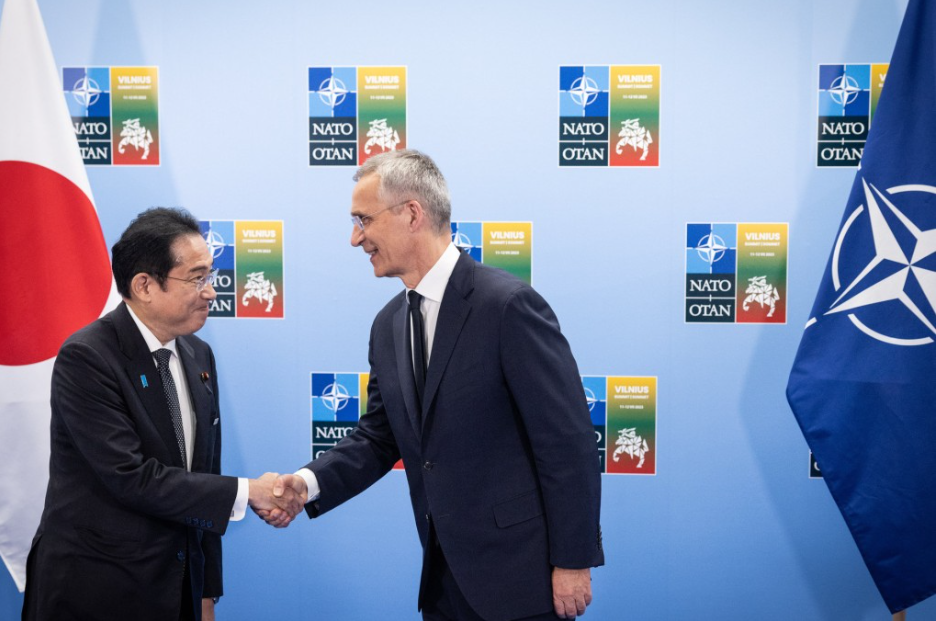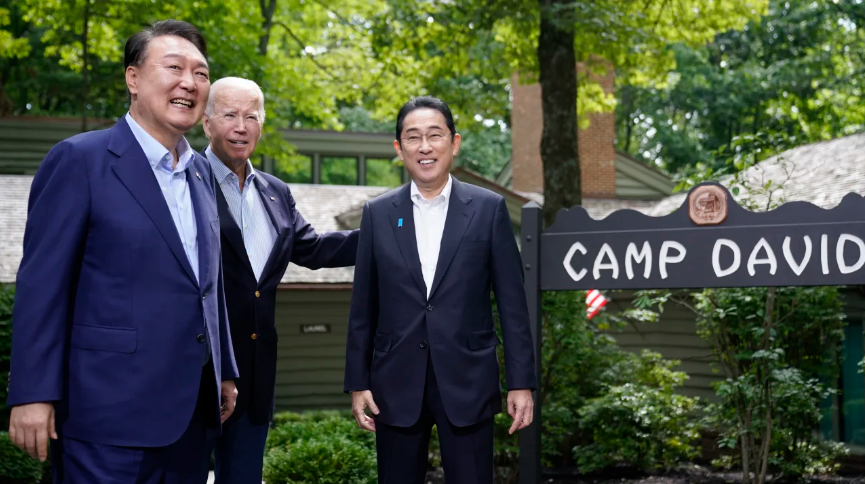
Sebastian Contin Trillo-Figueroa, Geopolitics Analyst in EU-Asia Relations and AsiaGlobal Fellow, The University of Hong Kong
Sep 29, 2023
Since the end of World War II, the West’s hegemonic power has been synonymous with the NATO alliance. Decades later, the scope of NATO’s cause has expanded far beyond the “North Atlantic,” and is now locking horns with an ascendant China.

Li Yan, Deputy Director of Institute of American Studies, China Institutes of Contemporary International Relations
Sep 05, 2023
The deepening trilateral collaboration of the United States, Japan and the Republic of Korea is undermining stability on the Korean Peninsula, and recent provocative actions, will only serve to escalate tensions further. In addition, harsh rhetoric erodes the fragile trust of nations and could result in a generalized sense of insecurity.
Zhai Kun, Professor at School of International Studies; Deputy Director of Institute of Area Studies, Peking University
Yin Ke, PhD candidate at the School of International Studies, Peking University
Sep 05, 2023
The ongoing Second Thomas Shoal incident could trigger misjudgments and a wider conflict. Keeping the peace will require a comprehensive approach to crisis management, especially where foundational principles are involved.
Luo Liang, Assistant Research Fellow, National Institute for South China Sea Studies
Jul 21, 2023
With stepped up military cooperation, the Philippines has joined the “first team” of U.S. allies working to restrict and subdue China. Yet others, such as Indonesia, have applied the brakes.
Jade Wong, Senior Fellow, Gordon & Leon Institute
Jul 21, 2023
Boundaries have always been a core element in international politics. The United States has extended its Monroe Doctrine from the dominance of its own hemisphere to the world at large, so it’s hard to say exactly what the boundaries of NATO will look like in the future. But we know it will be expanding.
Jun 06, 2023
Tensions between China and the West are being reinforced as assumptions about economic cooperation give way to national security rhetoric. Broad decoupling would be too difficult and costly for the West, while selectively reducing dependence on China in critical areas is seen as a more achievable goal.
Doug Bandow, Senior Fellow, Cato Institute
May 31, 2023
President Joe Biden has expressed optimism about the U.S.-China relationship. But regardless of whether his positive outlook is warranted, disengagement is “not the way out.” Washington and Beijing must find a new way to get along.
Zhang Yun, Associate Professor at National Niigata University in Japan, Nonresident Senior Fellow at University of Hong Kong
May 16, 2023
Extended deterrence by the U.S. and ROK, as well as the framing of security as a regional issue requiring alliances, illustrates the spread of NATO-style security thinking. From China’s perspective, this will result in a further imbalance in the region’s security order and requires resolute opposition.
Joseph S. Nye, Professor, Harvard University
May 03, 2023
We live in a world where geopolitical stability relies largely on deterrence. But how can we prove that deterrence works?